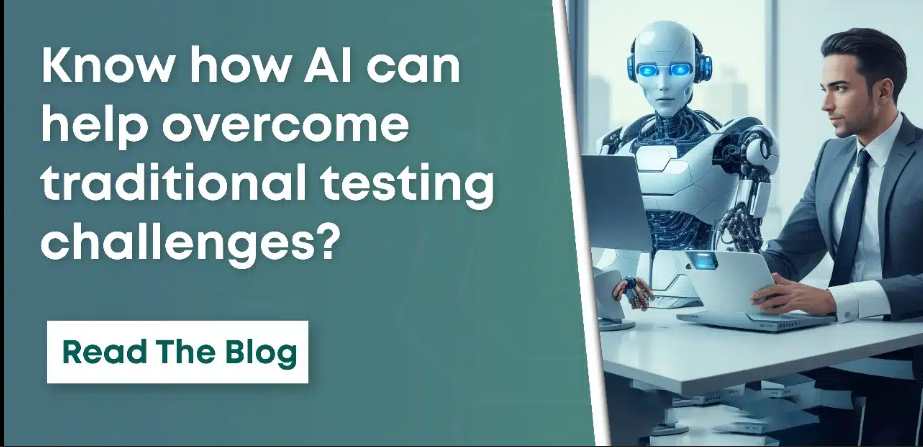In today’s digital landscape, software applications are essential for managing critical business processes such as banking, supply chain management, payroll and salary disbursement, and inventory control. Testing is vital to ensure that these software applications operate with the highest level of accuracy. Over the years, the testing process has evolved from manual methods to automated solutions. However, certain limitations still exist within these automated systems. In this blog, we will explore these limitations and discuss how artificial intelligence (AI) can effectively address them.
Limitations of Traditional Test Automation
Test Script Writing: Regression testing is one of the most common and valuable use cases for test automation. In many organizations, this responsibility often falls on business users. However, most traditional test automation platforms are built with developers in mind and typically require programming knowledge to create and maintain test scripts. As a result, non-technical business users often struggle to use these tools effectively, which can lead to delays and inefficiencies in the testing process.
Inadequate Coverage: During regression testing, testers often manually select the regression suites based on their personal experience or make educated guesses. This approach can lead to the possibility that critical business processes may be exposed to vulnerabilities. To mitigate these risks, AI for test automation can be included as it can ensure comprehensive coverage of critical business processes.
Test Script Maintenance: Maintenance of test scripts is a great issue with traditional tools as a minor UI change can make scripts fragile that require a lot of maintenance effort.
Addressing Challenges of Traditional Test Automation using AI
Artificial intelligence has transformed several industries and software testing is no longer an exception. Here is how it can transform traditional testing techniques.
No-code Automation: Natural language processing, a branch of AI, can be used to create test scripts in plain English language. Since programming is not involved, business users can easily create scripts without spending time learning programming.
Smart Regressions: Whenever regression testing needs to be done, AI can be used to understand the impact of code change on business processes. Based on this, it can recommend test cases that need to be executed to ensure adequate coverage.
Self-healing: AI can be used to identify the change in the dynamic element. Furthermore, it can be used to heal up the test scripts so that they remain functional.
How Opkey’s AI Test Automation Can Help?
Opkey is industry’s first Agentic AI powered ERP Lifecycle Optimization platform. It can be used to automate regression testing as well as performing end-to-end testing across enterprise apps.
Opkey is a leading AI-powered test automation platform that offers smart regressions using Oracle Cloud update. A use-case of Opkey regression testing is Oracle Fusion quarterly updates. Whenever new Oracle updates are rolled out, Opkey’s built-in AI analyzes the impact of change and recommends test cases based on impact. This keeps your critical business processes safe from getting broken.
Opkey’s agent can also be used to create test cases without requiring programming knowledge. Opkey’s agent can identify your business processes through process mining and can create test scripts autonomously. You can also automate your manual test cases with the click of a button.
Comes powered with self-healing capabilities, Opkey alleviates the test script maintenance burden so that you get the true value of your investment in test automation.
Conclusion
AI has transformed multiple industries, and its impact on test automation is no exception. By integrating AI into test automation, organizations can achieve high software quality at speed. In today’s fast-paced digital world, agility is essential to stay competitive amid rapidly changing market dynamics. AI-powered test automation platforms support this need by enabling continuous integration and delivery. With continuous testing, you not only build reliable applications but also ensure their ongoing improvement and adaptability.

